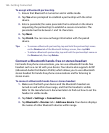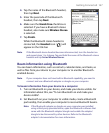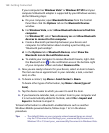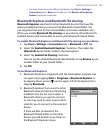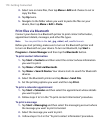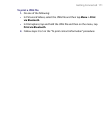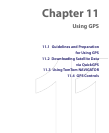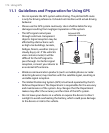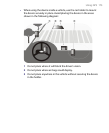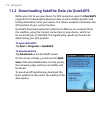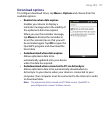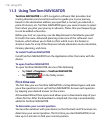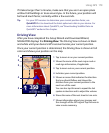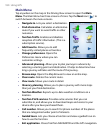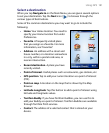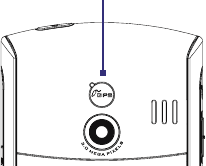
174 Using GPS
11.1 Guidelines and Preparation for Using GPS
•
Do not operate the GPS system while driving. The plotted GPS route
is only for driving reference. It should not interfere with actual driving
behavior.
•
Please use the GPS system cautiously. Users shall be liable for any
damages resulting from negligent operation of the system.
• The GPS signal cannot pass
through solid non-transparent
objects. Signal reception may be
affected by obstructions such
as high-rise buildings, tunnels,
bridges, forests, weather (rainy or
cloudy days), etc. If the vehicle’s
visor contains metal, it will be
difficult for the GPS signal to
pass through. For better signal
reception, connect your device to
an external GPS antenna.
External GPS
antenna connector
• Wireless communication products (such as mobile phones or radar-
detecting devices) may interfere with the satellite signal, resulting in
unstable signal reception.
• The Global Positioning System (GPS) is built and operated by the US
Defense Department. The Department is responsible for the accuracy
and maintenance of the system. Any changes that the Department
makes may affect the accuracy and function of the GPS system.
• Do not leave your device in a vehicle or expose the device to direct
sunlight to avoid overheating the battery, which could pose damage
to the device or risk to the vehicle.



